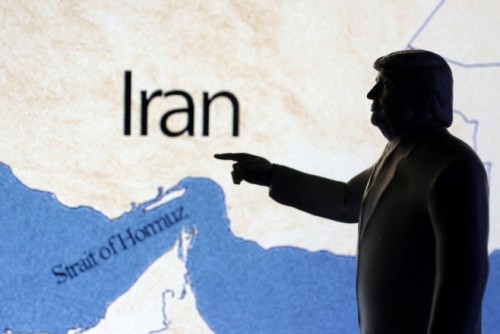 |
| A 3D-printed miniature of U.S. President Donald Trump is seen in front of a map highlighting Iran and the Strait of Hormuz in this illustration taken on June 22. / Source: Reuters-Yonhap News |
Global oil prices surged on June 22 (local time) following Iran’s parliamentary decision to blockade the Strait of Hormuz in retaliation for the U.S. airstrikes on its nuclear facilities.
As of 6:20 p.m. Eastern Time, West Texas Intermediate (WTI) crude futures rose 4.23% to $75.83 per barrel on the New York Mercantile Exchange.
Brent crude futures climbed 4.25% to $80.28 per barrel, marking the first time Brent has exceeded the $80 mark since January 15.
Iran’s parliament officially passed a motion on June 22 to block the Strait of Hormuz.
Due to the geography of the strait, navigable channels for large oil tankers are extremely limited. Most tankers must pass through Iranian territorial waters, effectively giving Tehran control over the waterway.
Roughly 25% of global oil consumption and 20% of global liquefied natural gas (LNG) consumption pass through the Strait of Hormuz. A full blockade could therefore have a sweeping impact on global energy markets.
Iran’s state-run Press TV reported that the final decision on the blockade rests with the country’s Supreme National Security Council.
Most Read
-
1
-
2
-
3
-
4
-
5
-
6
-
7





















